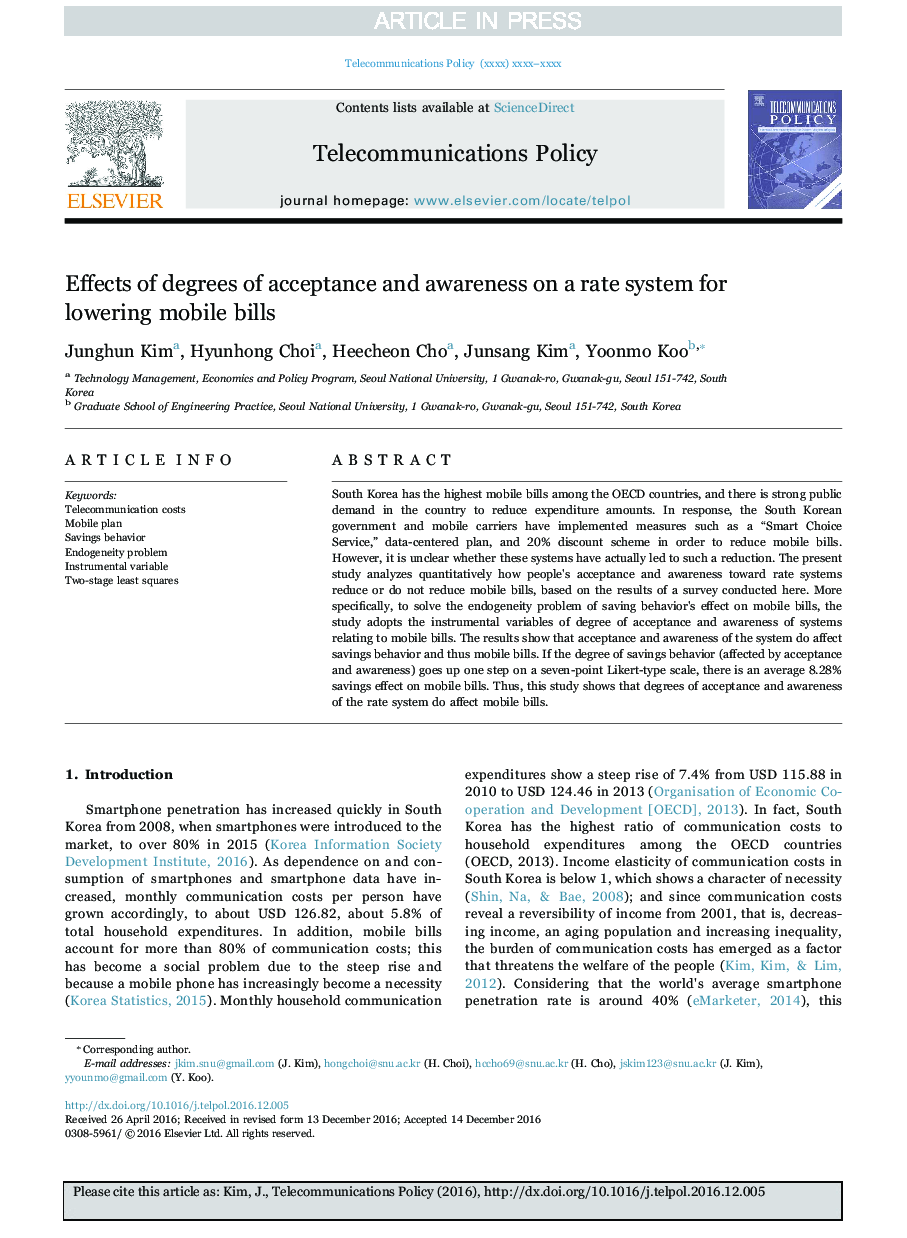| Article ID | Journal | Published Year | Pages | File Type |
|---|---|---|---|---|
| 4973274 | Telecommunications Policy | 2017 | 9 Pages |
Abstract
South Korea has the highest mobile bills among the OECD countries, and there is strong public demand in the country to reduce expenditure amounts. In response, the South Korean government and mobile carriers have implemented measures such as a “Smart Choice Service,” data-centered plan, and 20% discount scheme in order to reduce mobile bills. However, it is unclear whether these systems have actually led to such a reduction. The present study analyzes quantitatively how people's acceptance and awareness toward rate systems reduce or do not reduce mobile bills, based on the results of a survey conducted here. More specifically, to solve the endogeneity problem of saving behavior's effect on mobile bills, the study adopts the instrumental variables of degree of acceptance and awareness of systems relating to mobile bills. The results show that acceptance and awareness of the system do affect savings behavior and thus mobile bills. If the degree of savings behavior (affected by acceptance and awareness) goes up one step on a seven-point Likert-type scale, there is an average 8.28% savings effect on mobile bills. Thus, this study shows that degrees of acceptance and awareness of the rate system do affect mobile bills.
Related Topics
Physical Sciences and Engineering
Computer Science
Information Systems
Authors
Junghun Kim, Hyunhong Choi, Heecheon Cho, Junsang Kim, Yoonmo Koo,
